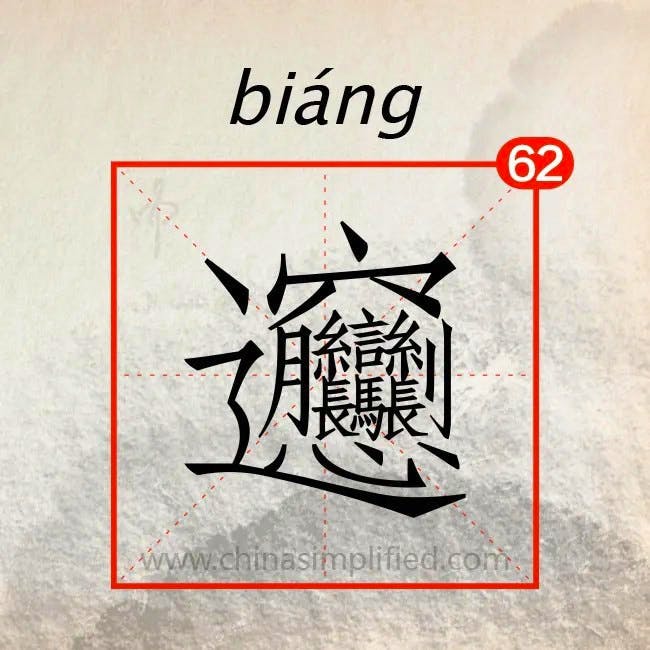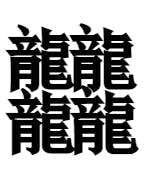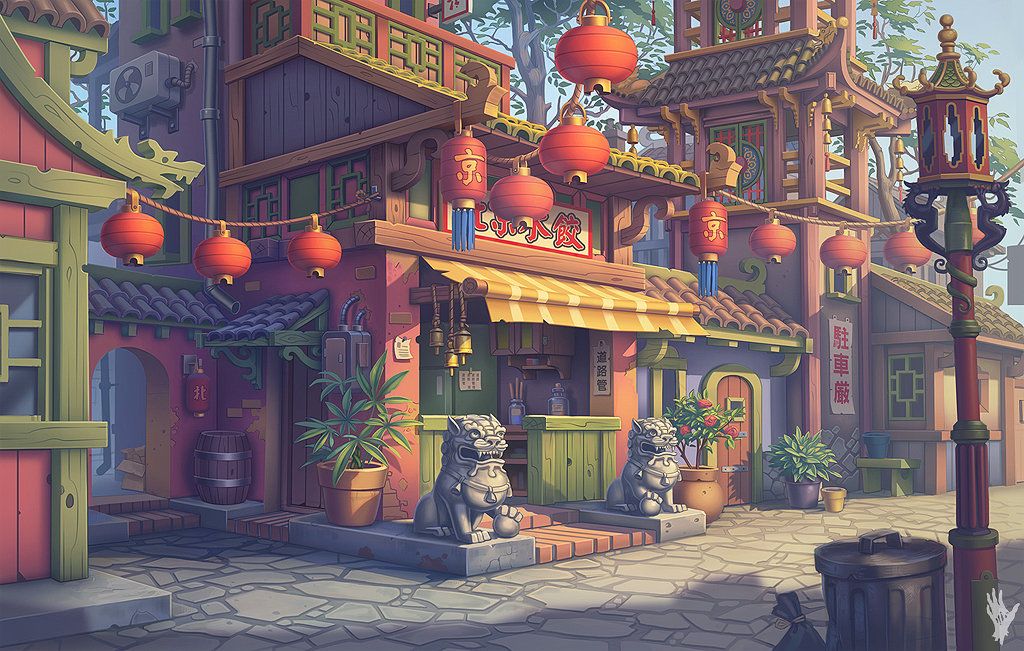Welcome back to the second episode of our favorite and most interesting Chinese characters. If you missed Part I, click here to see our first round of weird, cool, bizarre, and strange characters.
Let’s get right to it! Here are #6-#10 in our ranking of most interesting Chinese characters.
屮 chè
Definition: ancient word for grass; it later evolved to form the plant radical (艹) found atop many plant-related words: 草 (modern-day “grass”) and 苗 (“sprout” and also the Miao ethnic group).
Nope, it’s not a pitchfork or a trident. This character has ancient origins and means ‘grass.’ You might notice that it looks like blades of grass sticking up from the ground.

biáng
This character is so complicated it cannot even be written on a Chinese keyboard. It has 62 strokes, and this is what it looks like:

Definition: biangbiangmian is a delicious type of noodle popular in Xi’an, a city in Western China. The character looks terrifying and has puzzled many students who try to remember it, but the noodles are delicious!
zhé
This character has even more strokes than biang. This is what it looks like:

Definition: long-winded or talkative.
This is a character that is not in much popular use today. You aren’t likely to see this character on an essay or in a book, since it is too complicated for Chinese keyboards to type! But this is the Chinese character with the most strokes. Zhe has 64 strokes!
You might also realize that this character is the traditional Chinese character for dragon (龍 lóng) duplicated four times.
那 nà
Definition: that / those / then (in that case)
This is one of the first characters you will learn as a Chinese language student. It is remarkable because it actually has multiple different pronunciations: nā, nǎ, nà, nè, něi, nèi, nuó, or nuò. The pronunciation changes depending on the usage, context, and sometimes the dialect.
One of the most common is 那 pronounced as nèi, especially in a Beijing dialect. For example, Beijingers will say nèige (那个) instead of nàge to say “that one.”

齆 wèng
Definition: a stuffy or blocked nose
This word looks unnecessarily complicated for such a simple meaning. If you have a cold or are suffering from allergies, you may say 我有点齆 Wǒ yǒudiǎn wèng–I’m a bit stuffy or nasally.
齆 is made up of two other characters: 鼻 bí, which means nose, and 邕 yōng, which means “a city surrounded by a moat” or the old name of Nanning, a town in Guangxi Province.

Read More:
7 Apps To Learn Chinese Online For FREE in 2022
24 Amazing Facts About The Chinese Language That You Probably Didn’t Know!
How to Communicate and Meet People in China 2022
- 9 Best Schools to Study Chinese in Beijing in 2025! - April 6, 2025
- How to Apply to the CSC Scholarship Step by Step - March 30, 2025
- BLCC Chinese Language Program Deadline: August 30, 2025 - March 21, 2025
